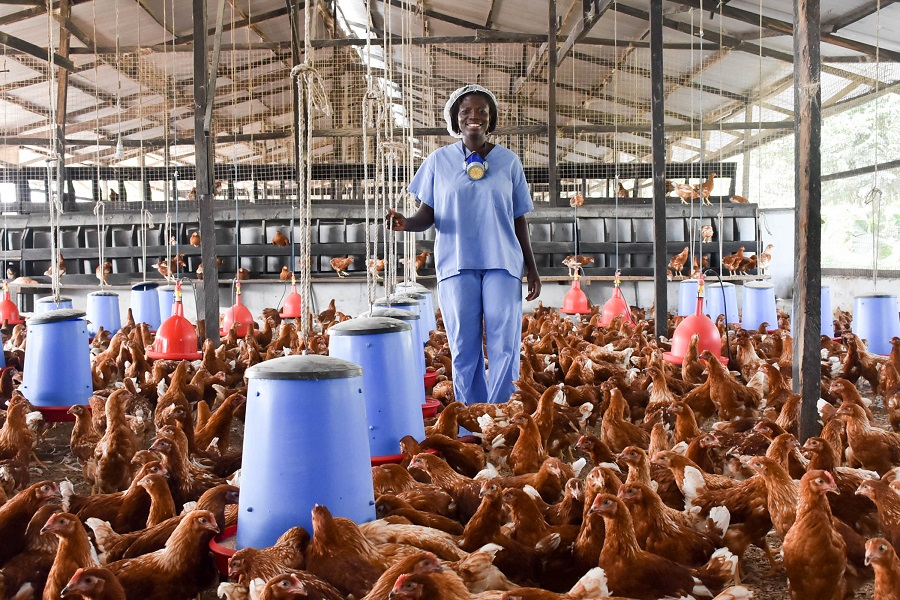Canada’s poultry industry is a significant contributor to the country’s agricultural landscape, providing employment opportunities and contributing to the nation’s economy. With a growing demand for poultry products domestically and internationally, there is a continuous need for skilled workers to support this industry. For individuals seeking employment opportunities in Canada’s poultry sector, understanding the job market and visa sponsorship options is crucial. In this article, we delve into the landscape of poultry jobs in Canada, the types of roles available, visa sponsorship programs, and the challenges and opportunities for prospective workers.
Overview of Canada’s Poultry Industry
Canada’s poultry industry is comprised of various sectors including chicken, turkey, and egg production. According to statistics, the poultry industry contributes billions of dollars to the Canadian economy annually, with a significant portion of this revenue generated from exports to international markets. The industry is characterized by modern farming practices, technological advancements, and stringent regulations aimed at ensuring food safety and animal welfare standards.
Types of Poultry Jobs in Canada
- Poultry Farm Workers: Poultry farm workers are responsible for various tasks including feeding, watering, and monitoring the health of poultry birds. They also assist in cleaning and maintaining poultry housing facilities, as well as handling eggs and chicks.
- Poultry Production Managers: Production managers oversee the day-to-day operations of poultry farms, ensuring efficient production processes, adherence to quality standards, and compliance with regulatory requirements. They are responsible for managing staff, implementing health and safety protocols, and optimizing production outputs.
- Poultry Processing Workers: Poultry processing workers are involved in the processing and packaging of poultry products such as chicken and turkey. Their responsibilities include slaughtering, eviscerating, and deboning poultry birds, as well as operating machinery and ensuring product quality and safety.
- Veterinarians and Animal Health Technicians: Veterinarians and animal health technicians play a crucial role in poultry health management. They are responsible for diagnosing and treating poultry diseases, implementing vaccination programs, and providing preventive care to maintain flock health.
- Quality Assurance Inspectors: Quality assurance inspectors ensure that poultry products meet regulatory standards and specifications. They conduct inspections throughout the production and processing stages to identify any issues related to product quality, hygiene, and safety.
Visa Sponsorship Programs for Poultry Workers
For individuals seeking employment opportunities in Canada’s poultry industry, there are several visa sponsorship programs available:
- Temporary Foreign Worker Program (TFWP): The TFWP allows Canadian employers to hire foreign workers to fill temporary labor shortages in specific occupations, including poultry-related roles. Employers must obtain a Labor Market Impact Assessment (LMIA) to demonstrate the need for foreign workers and comply with program requirements.
- Seasonal Agricultural Worker Program (SAWP): The SAWP enables agricultural employers to hire temporary foreign workers for seasonal agricultural work, including poultry farming and processing. Participating employers must meet program criteria and provide housing and transportation for workers during their stay in Canada.
- Provincial Nominee Programs (PNPs): Several Canadian provinces offer PNPs that allow employers to nominate foreign workers for permanent residency based on their skills and contributions to the local labor market. Poultry workers with relevant experience and qualifications may be eligible for nomination under provincial immigration streams.
- Express Entry System: The Express Entry system is a federal immigration program that manages applications for skilled workers seeking to immigrate to Canada. Poultry workers with in-demand skills and experience may qualify for permanent residency through the Federal Skilled Worker Program (FSWP), Federal Skilled Trades Program (FSTP), or Canadian Experience Class (CEC).
Challenges and Opportunities
While Canada offers numerous opportunities for poultry workers, there are also challenges associated with employment in the industry:
- Seasonal Nature of Work: Many poultry-related jobs are seasonal, resulting in fluctuations in employment demand throughout the year. Workers may experience periods of unemployment or reduced hours during off-peak seasons.
- Physical Demands and Working Conditions: Poultry farming and processing involve physically demanding tasks and exposure to various environmental factors such as dust, noise, and odors. Workers must adhere to safety protocols and use personal protective equipment to minimize health risks.
- Language and Cultural Barriers: Foreign workers may face challenges related to language proficiency and cultural adaptation when relocating to Canada for employment. Employers and workers alike must prioritize effective communication and cultural sensitivity to foster a positive work environment.
- Work-Life Balance: The demanding nature of poultry jobs, particularly in production and processing facilities, can impact work-life balance and contribute to stress and fatigue among workers. Employers should implement policies and practices that promote employee well-being and work-life harmony.
Despite these challenges, employment in Canada’s poultry industry offers numerous benefits and opportunities for personal and professional growth. From gaining valuable experience in modern farming practices to contributing to the nation’s food security and sustainability, poultry workers play a vital role in Canada’s agricultural sector.
Conclusion
Poultry jobs in Canada represent a diverse array of opportunities for individuals seeking employment in the agricultural industry. With the demand for poultry products continuing to rise, there is a growing need for skilled workers to support production, processing, and distribution activities. Visa sponsorship programs provide avenues for foreign workers to pursue employment opportunities in Canada’s poultry sector, contributing to the country’s economic growth and cultural diversity. While challenges exist, proactive measures and collaboration between employers, workers, and government agencies can help overcome obstacles and create a thriving and inclusive poultry workforce in Canada.

